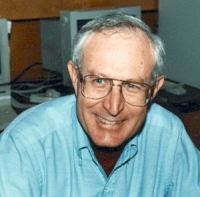个人简介
B.S. (1961): University of Alabama
M.S. (1963) : University of Virginia
Ph.D. (1965) : University of Virginia
Postdoctoral Fellowship (1966) : University of Virginia
Organic Chemistry
研究领域
Currently, research in our group focuses on drug design and synthesis. Our synthesis work centers on development of molecules that selectively interact with nucleic acids, which is hypothesized to lead to the observed biological activity. Synthetic work underway is directed toward discovery of new therapeutic agents for treatment of a variety of infectious diseases. These projects involve important collaborations with other scientists at Georgia State University, at other universities and institutes, and in industry.
Our approach to development of new antimicrobial agents is based upon the ability of certain diaryldiamidines (dications) to bind selectively to the minor groove of AT regions of DNA and thereby inhibit one or more DNA dependant enzymes such as the topoisomerases. Molecules selected for synthesis include the following features: (a) dicationic; (b) a shape that complements the minor groove of B-DNA; (c) recognition units (H-bond donors and acceptors) on the edge of the molecule facing the floor of the groove; and (d) variable bulk on the outer edge of the molecule. Recently, we have shown that certain linear diamidines also can bind in the minor groove with high affinity thus broadening the conventional design strategy. Since these dicationic molecules do not have good oral bioavailability an important part of our research program is directed toward developing orally effective prodrugs for the diamidines. Our current emphasis is on protozoan diseases and AIDS related opportunistic diseases. One of our prodrugs was in two Phase III clinical trials; one for human African trypanosomiasis and the other for Pneumocystis carinii pneumonia, however it has recently been withdrawn due to toxicity.
The human genome project as well as the sequencing of the genomes of various organisms offers a wealth of DNA targets for both therapeutic and diagnostic applications. In collaboration with Professor W. David Wilson at Georgia State University, we have recently shown that an unfused aromatic dication (aromatic diamidine) can recognize specific sequences of DNA by binding in the minor groove as a stacked-dimer. The dimer binding is strong, highly cooperative and, in contrast to related minor groove binding dications, recognizes both GC and AT base pairs in the binding site. A number of compounds in the unfused aromatic dication series have shown excellent ability to enter cells, exert useful biological activity and show relatively low nonspecific toxicity. We are pursuing compound synthesis and DNA interaction studies to increase our understanding of the structural features that influence dimer formation as well as interaction specificity and affinity. The goal of these studies is to probe the importance of structural features for formation of the stacked dimer species. We are particularly interested in developing new classes of compounds that can interact with DNA as stacked-dimers. Such compounds have the ability to simultaneously recognize both strands of DNA with significantly enhanced binding strength and specificity. We are continuing to develop new types of compounds that can recognize a number of DNA sequences with high specificity.
近期论文
 查看导师最新文章
(温馨提示:请注意重名现象,建议点开原文通过作者单位确认)
查看导师最新文章
(温馨提示:请注意重名现象,建议点开原文通过作者单位确认)
H. Göker, D.W. Boykin , S. Yild, Synthesis and Potent Antimicrobial activity of Some Novel 2-Phenyl or Methyl-4H-1-Benzopyran-4-ones carrying amidinobenzimidazoles, Bioorg. Med. Chem., 13, 1707-1714 (2005).
L. Stefanovic, C. E. Stephens, D. W. Boykin, B. Stefanovic, Inhibitory effect of dicationic diphenylfurans on production of type I collagen by human fibroblasts and activated hepatic stellate cells, Life Sciences, 76, 2011-2026 (2005).
C. Bailly, R. K. Arafa, F. Tanious, W. Laine, C. Tardy, A. Lansiaux, P. Colson, D. W. Boykin,W D.Wilson, Molecular determinants for DNA minor groove recognition: Design of bis-guanidinium derivative of ethidium highly selective for AT-rich DNA sequences, Biochemistry, 44, 1941-1952 (2005).
J H. Ansede, R D. Voyksner, M. A. Ismail, D. W. Boykin, R R. Tidwell and J E Hall, In Vitro Metabolism of an Orally Active O-Methyl Amidoxime Prodrug for the Treatment of CNS Trypanosomiasis, Xenobiotica, 35, 211-225 (2005).
W.D Wilson, B. Nguyen, F. A. Tanious, A. Mathis, J. E. Hall, C. E. Stephens, D. W. Boykin, Dications That Target the DNA Minor Groove: Compound Design and Preparation, DNA Interactions, Cellular Distribution and Biological Activity, Current Medicinal Chemistry-Anti-Cancer Agents, 5, 389-408 (2005).


